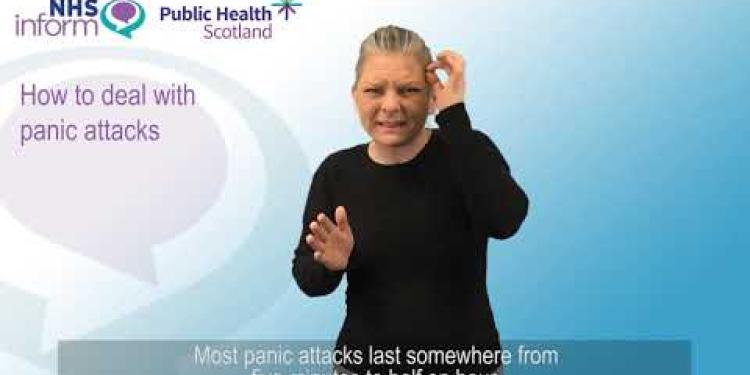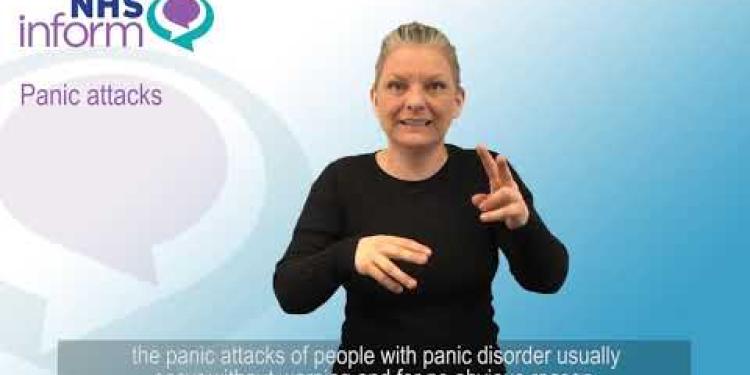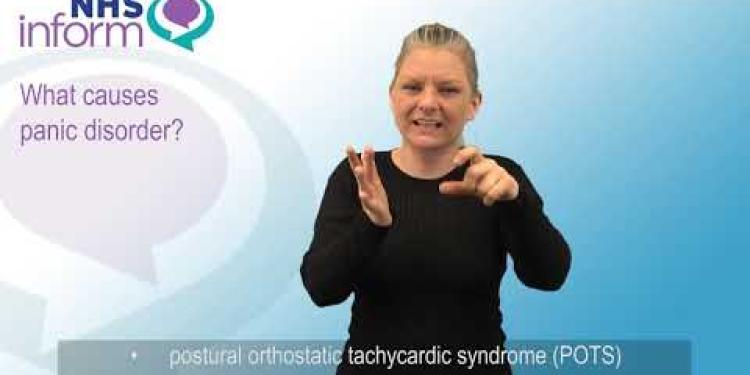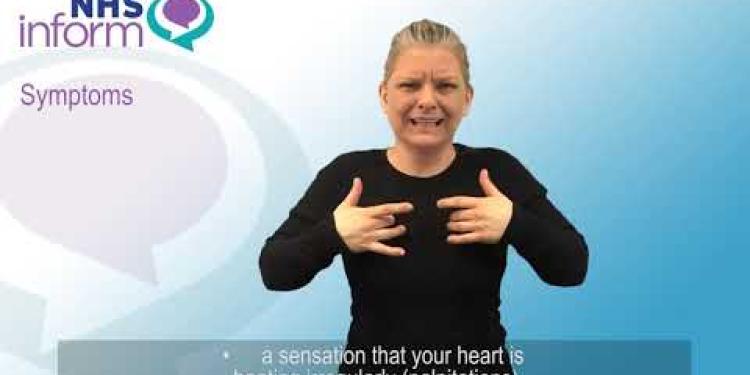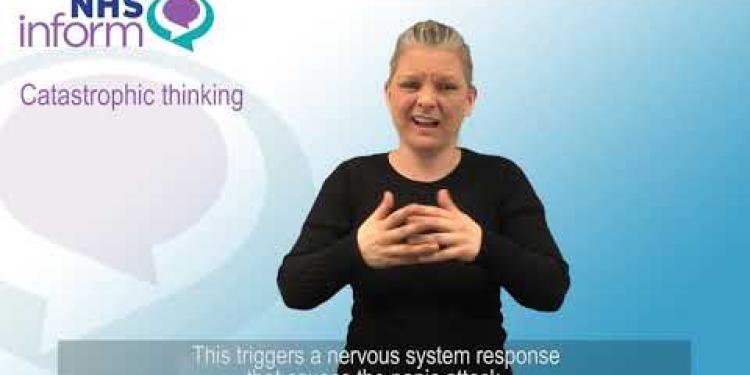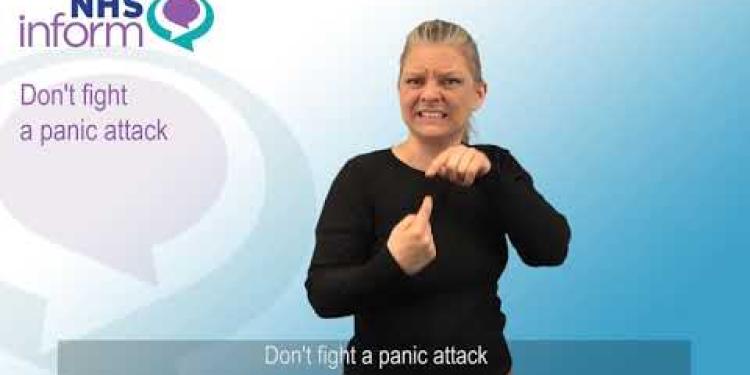Important Information On Using This Service
- Ergsy carefully checks the information in the videos we provide here.
- Videos shown by YouTube after a video has completed have NOT been reviewed by ERGSY.
- To view, click the arrow in the center of the video.
Using Subtitles and Closed Captions
- Most of the videos you find here will have subtitles and/or closed captions available.
- You may need to turn these on and choose your preferred language.
Turn Captions On or Off
- Go to the video you'd like to watch.
- If closed captions (CC) are available, settings will be visible on the bottom right of the video player.
- To turn on captions, click settings.
- To turn off captions, click settings again.
Find A Professional
More Items From Ergsy search
-
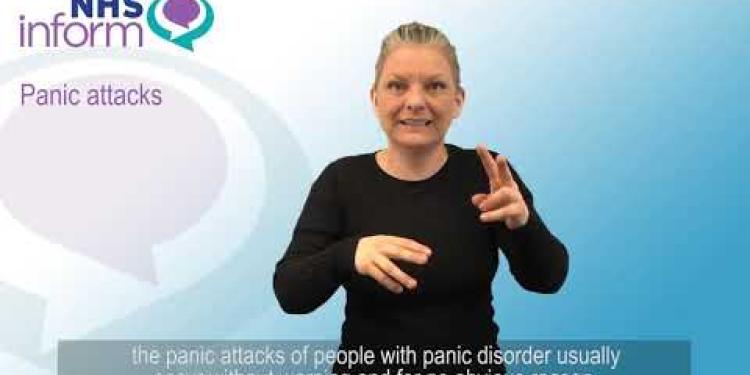
BSL - Diagnosis of panic disorder
Relevance: 100%
-
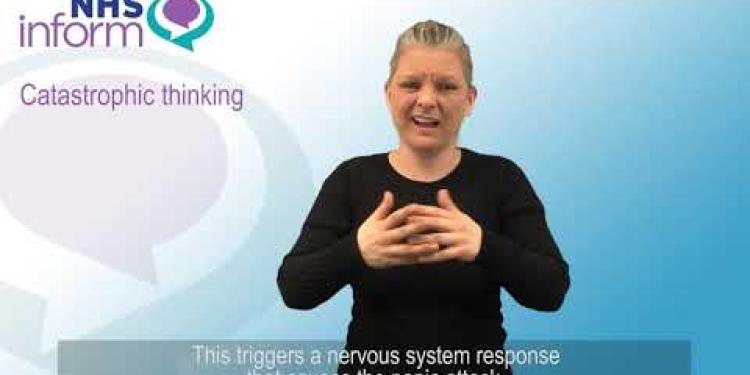
BSL - Causes of panic disorder
Relevance: 84%
-
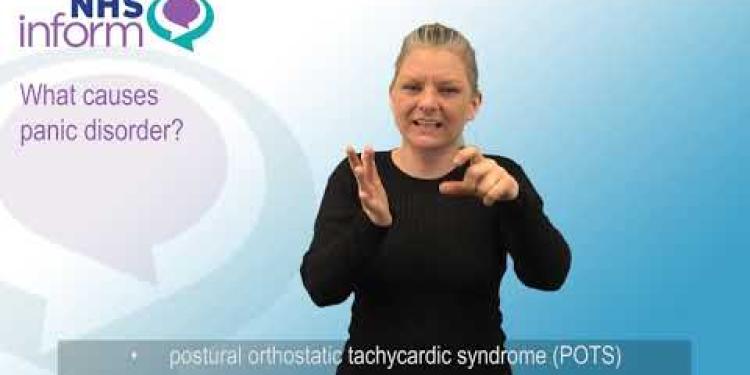
BSL - Introduction to panic disorder
Relevance: 71%
-
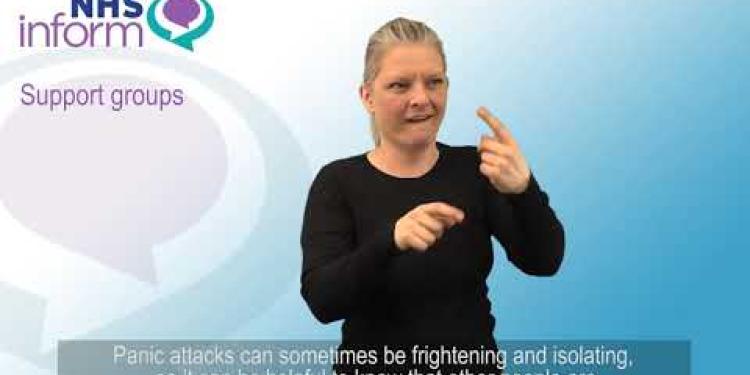
BSL - Treatment of panic disorder
Relevance: 65%
-
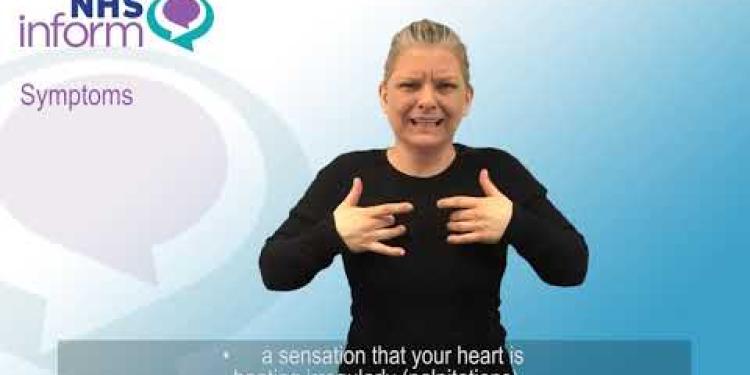
BSL - Symptoms of panic disorder
Relevance: 62%
-
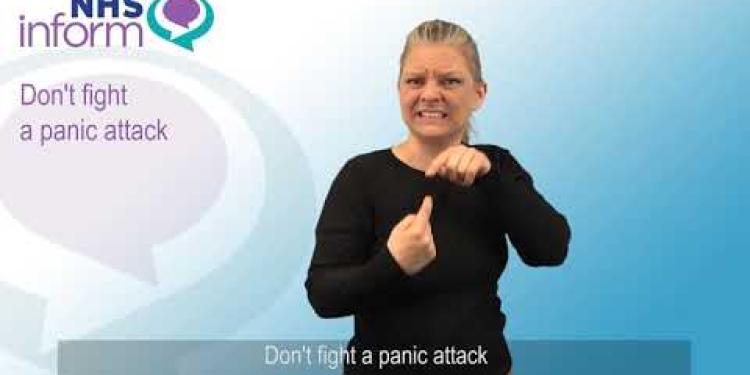
BSL - Panic disorder: things you can do to help yourself
Relevance: 57%
-

Short Films About Mental Health - Personality Disorders
Relevance: 52%
-

The treatment approach for an eating disorder
Relevance: 41%
-

Eating disorders: treatment
Relevance: 41%
-
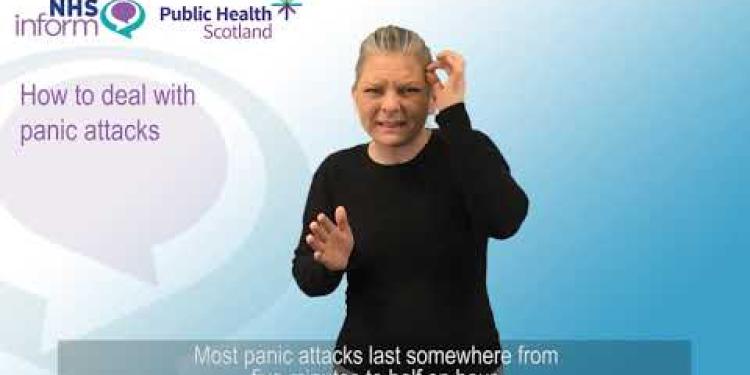
BSL - How to deal with panic attacks
Relevance: 40%
-

Living with Bipolar Disorder
Relevance: 36%
-

Bipolar disorder: Rod's story | NHS
Relevance: 33%
-

Jess Rann - Specialist Eating Disorders Dietitian
Relevance: 33%
-

What type of anxiety do children and teenagers experience?
Relevance: 29%
-

Steve Green tells his story on living with a hoarding disorder
Relevance: 29%
-
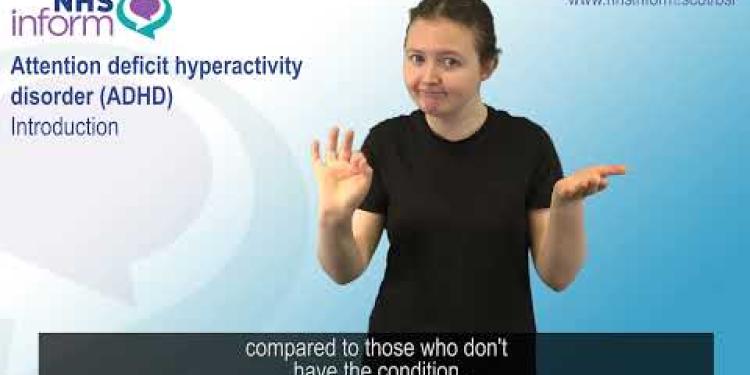
Attention deficit hyperactivity disorder (ADHD) - Introduction
Relevance: 18%
-
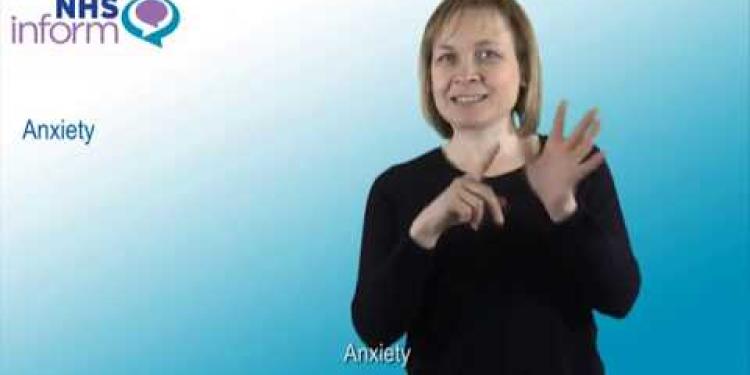
Generalised anxiety disorder (GAD)
Relevance: 17%
-
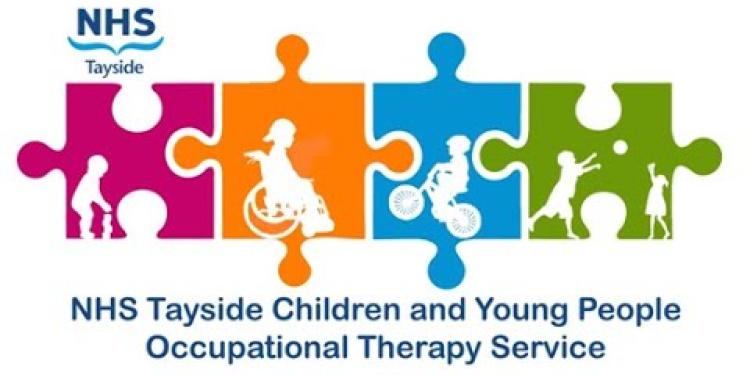
Developmental Coordination Disorder (DCD) for Children and Young People
Relevance: 15%
-

Anxiety | NHS
Relevance: 14%
-
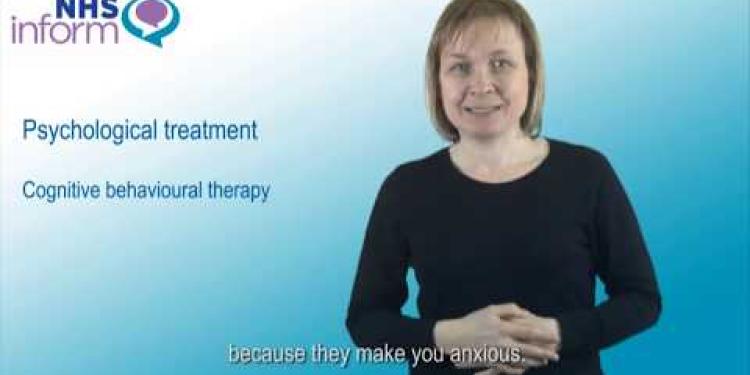
Treating generalised anxiety disorder (GAD)
Relevance: 13%
-
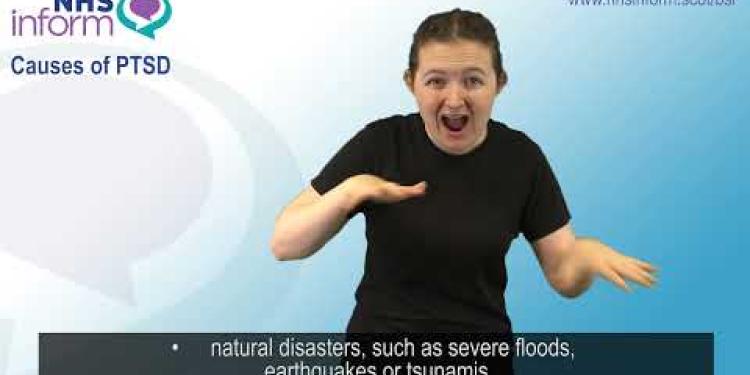
Post-traumatic stress disorder (PTSD) - Introduction
Relevance: 12%
-
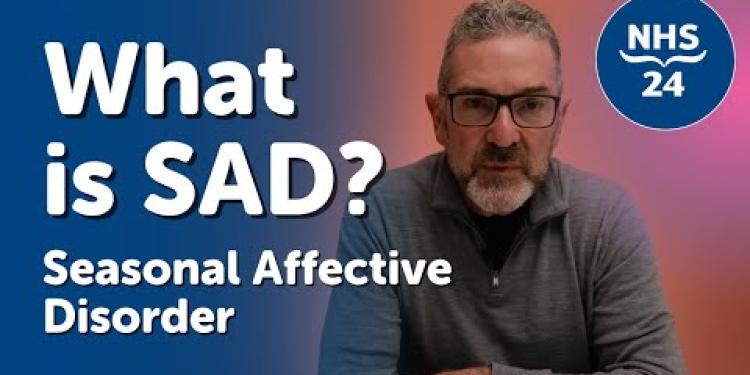
What is Seasonal Affective Disorder? (SAD)
Relevance: 12%
-

Anorexia nervosa | NHS
Relevance: 11%
-
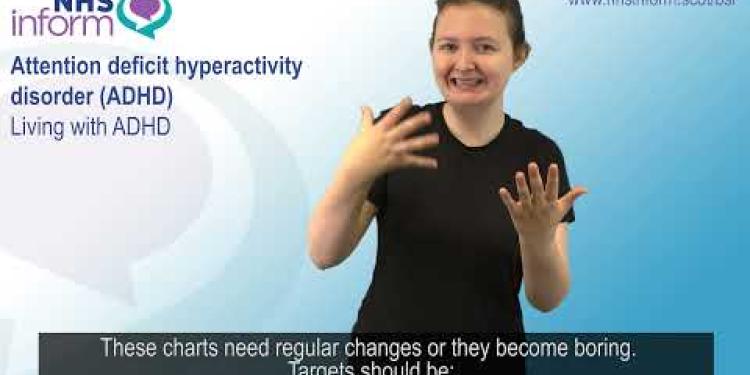
Attention deficit hyperactivity disorder (ADHD) - Living with ADHD
Relevance: 11%
-

Clara Strauss: What is Obsessive Compulsive Disorder OCD
Relevance: 11%
-
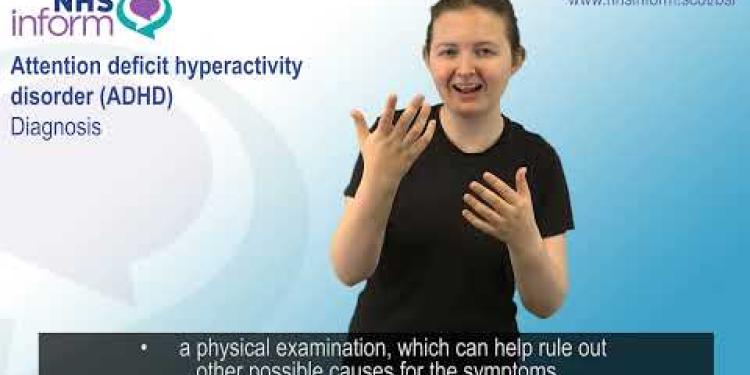
Attention deficit hyperactivity disorder (ADHD) - Diagnosis
Relevance: 11%
-
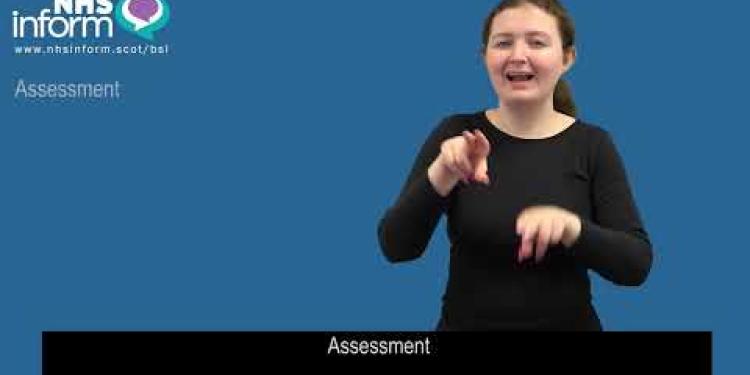
BSL - Diagnosis of obsessive compulsive disorder (OCD)
Relevance: 10%
-

Living with Foetal Alcohol Spectrum Disorder (FASD), a mum’s journey (full version)
Relevance: 10%
-
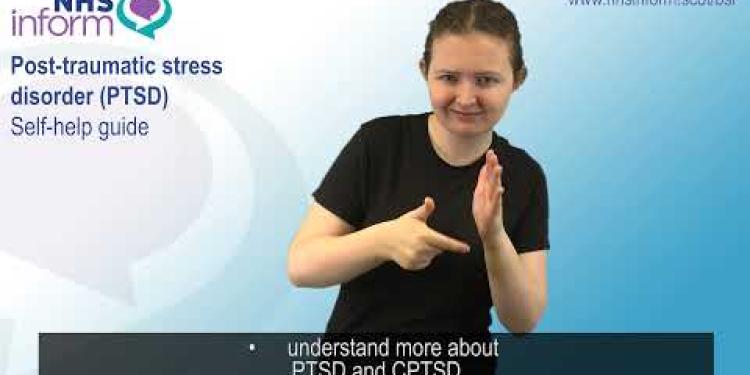
Post-traumatic stress disorder (PTSD) - Self-help guide
Relevance: 10%
-
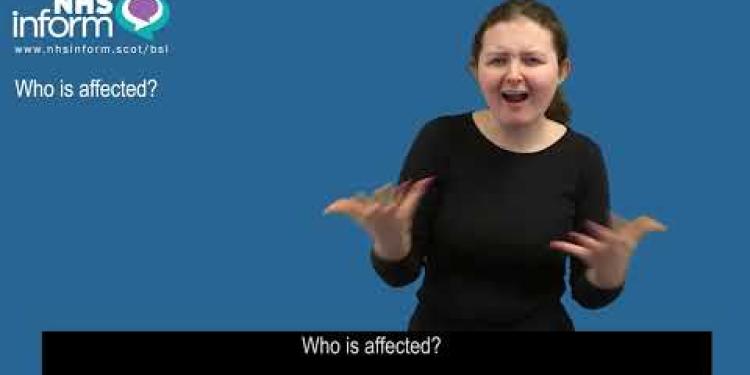
BSL - Introduction to obsessive compulsive disorder (OCD)
Relevance: 9%
-

Strategies for Managing Seasonal Affective Disorder
Relevance: 9%
-

Anorexia nervosa | NHS
Relevance: 9%
-

Dyspraxia Symptoms & Signs
Relevance: 9%
-
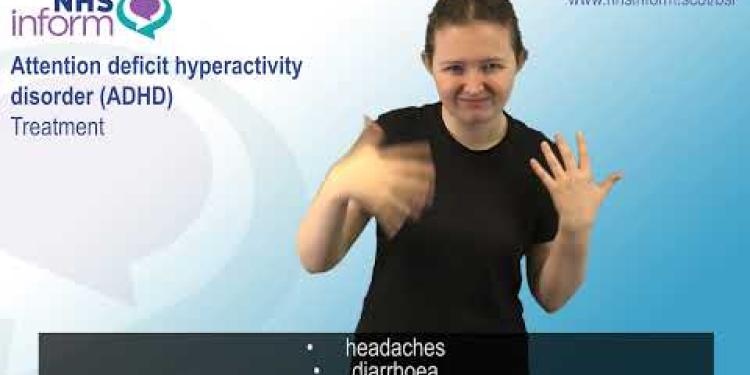
Attention deficit hyperactivity disorder (ADHD) - Treatment
Relevance: 8%
-
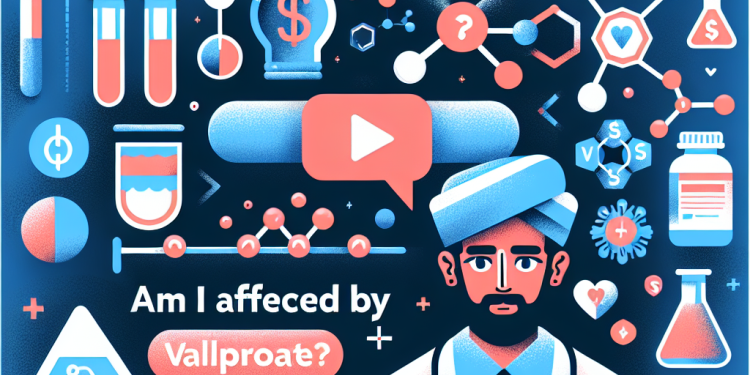
Am I affected by Sodium Valproate?
Relevance: 8%
-

FASD Foetal alcohol
Relevance: 8%
-
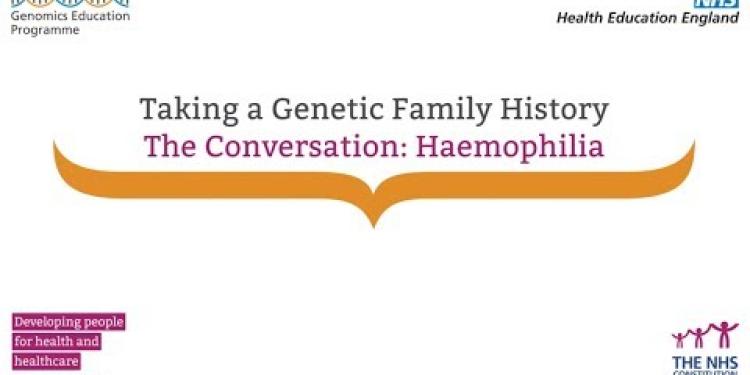
Haemophilia
Relevance: 7%
-

What is CBT
Relevance: 7%
-
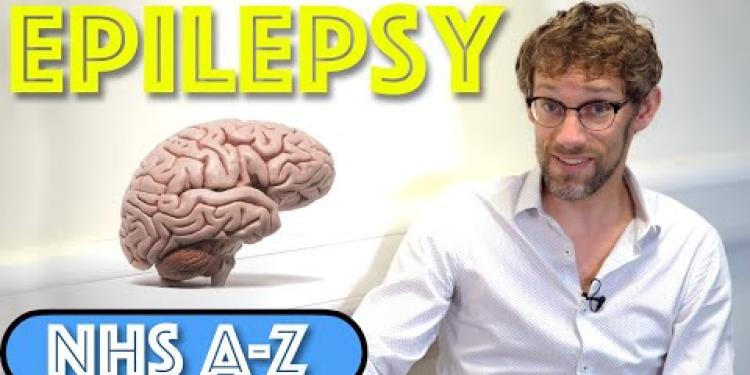
Epilepsy - What is Epilepsy and What Causes Seizures - NHS A to Z - Dr Gill
Relevance: 7%
-
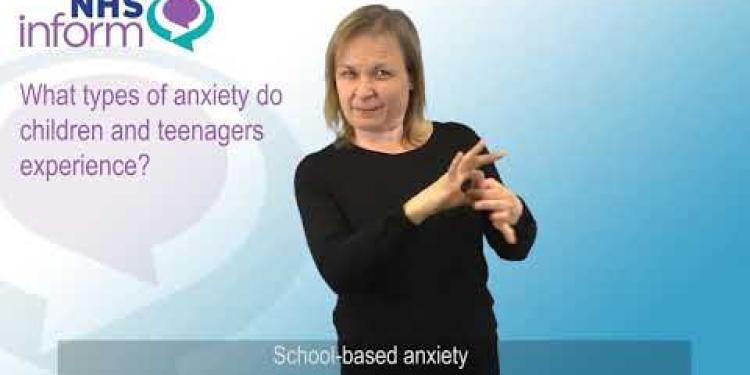
Anxiety in young people
Relevance: 7%
Treatment of Panic Disorder
Introduction to Panic Disorder
Panic disorder is a type of anxiety disorder marked by recurrent and unexpected panic attacks. These attacks are sudden periods of intense fear or discomfort that can include palpitations, sweating, trembling, and feelings of impending doom. Panic disorder can severely impact the quality of life, making treatment essential.
Cognitive-Behavioral Therapy (CBT)
Cognitive-Behavioral Therapy (CBT) is a widely-used treatment for panic disorder in the UK. This therapeutic approach helps individuals understand the patterns of thinking that lead to panic attacks and works on modifying these thought patterns. Techniques such as exposure therapy are also employed to gradually desensitize patients to panic-inducing situations. CBT is highly effective and often recommended as the first line of treatment.
Medication
Medications are also an essential part of treatment for some individuals with panic disorder. Selective Serotonin Reuptake Inhibitors (SSRIs) like sertraline and fluoxetine are commonly prescribed in the UK for their efficacy and relatively low side-effect profile. Benzodiazepines, such as diazepam, may be used for short-term relief of severe anxiety symptoms but are generally avoided for long-term treatment due to the risk of dependence.
Self-Help Strategies
For those experiencing panic disorder, self-help strategies can be highly beneficial. Techniques such as regular physical exercise, proper sleep hygiene, and mindfulness meditation can reduce anxiety levels. Additionally, many organisations in the UK offer support groups, which can provide a community of understanding and shared experiences.
Importance of Professional Support
While self-help strategies and medication can be effective, professional support from therapists, psychologists, or counsellors is often critical for successful treatment. The NHS and private practitioners in the UK provide these services. Early intervention and consistent follow-up can significantly improve outcomes for individuals suffering from panic disorder.
Conclusion
Effective treatment for panic disorder often involves a combination of Cognitive-Behavioral Therapy, medication, and self-help strategies. Accessing professional support is crucial for managing symptoms and improving quality of life. If you or someone you know is struggling with panic disorder, it is important to seek help to address this condition promptly.
Treatment of Panic Disorder
What is Panic Disorder?
Panic disorder is a type of problem with anxiety. People with this disorder have panic attacks. Panic attacks are times when you feel very scared and nervous. Your heart might beat fast, you could sweat a lot, shake, and feel like something bad will happen. It can make life hard, so getting help is important.
Getting Help with Cognitive-Behavioral Therapy (CBT)
Cognitive-Behavioral Therapy, or CBT, is a way to help people with panic disorder. In CBT, a therapist helps you see why you have panic attacks. You learn to change your thoughts to feel better. One method used is exposure therapy, where you slowly face what scares you in a safe way. CBT works well for many people and is often the first help you get.
Medicine for Panic Disorder
Some people may need medicine to help with panic disorder. Doctors in the UK often give medicines called SSRIs, like sertraline or fluoxetine. These can help make you feel less anxious. Sometimes, medicines called benzodiazepines are used to help you calm down. But, they are only used for a short time because you can get too used to them.
Helping Yourself
There are ways you can help yourself if you have panic disorder. Doing exercise, sleeping well, and trying meditation can make you less anxious. In the UK, there are also groups where you can talk to others who understand what you're going through.
Seeing a Professional is Important
Besides self-help and medicine, it is important to talk to a professional. People like therapists, psychologists, or counsellors can give you the help you need. The NHS in the UK and private doctors can provide this support. Getting help early and often can make a big difference.
Conclusion
To treat panic disorder well, you often need a mix of CBT, medicine, and self-help. Getting help from professionals can make living with panic disorder easier. If you know someone with panic disorder or you are dealing with it yourself, try to get help as soon as possible.
Frequently Asked Questions
What is panic disorder?
Panic disorder is a type of anxiety disorder characterised by recurrent and unexpected panic attacks, which are sudden periods of intense fear and discomfort.
What are the symptoms of panic disorder?
Symptoms include palpitations, sweating, trembling, shortness of breath, a feeling of choking, chest pain, nausea, dizziness, chills, hot flushes, numbness or tingling sensations, and fear of losing control or dying.
What causes panic disorder?
The exact cause of panic disorder is unknown, but it is believed to be a combination of genetic, biological, environmental, and psychological factors.
How is panic disorder diagnosed?
Panic disorder is diagnosed by a healthcare professional through a detailed assessment, which may include a physical examination, evaluation of symptoms, and a review of medical history.
What are the common treatments for panic disorder?
Common treatments include cognitive behavioural therapy (CBT), medication such as antidepressants and anti-anxiety drugs, as well as lifestyle changes and relaxation techniques.
What is cognitive behavioural therapy (CBT)?
CBT is a type of talking therapy that helps individuals understand and change their thought patterns and behaviours that contribute to their panic disorder.
What medications are typically prescribed for panic disorder?
Medications commonly prescribed include selective serotonin reuptake inhibitors (SSRIs), serotonin-norepinephrine reuptake inhibitors (SNRIs), benzodiazepines, and beta-blockers.
How long does treatment for panic disorder typically last?
The duration of treatment varies from person to person. CBT may require sessions over several months, while medications may be prescribed for a longer period to prevent relapse.
Are there any side effects of medications used to treat panic disorder?
Common side effects may include nausea, headaches, dizziness, dry mouth, weight gain, and sexual dysfunction. It's important to discuss any side effects with a healthcare provider.
Can lifestyle changes help manage panic disorder?
Yes, incorporating regular exercise, maintaining a healthy diet, getting adequate sleep, reducing caffeine and alcohol intake, and practising relaxation techniques can help manage symptoms.
Is it possible to prevent panic disorder?
There is no sure way to prevent panic disorder, but early treatment of anxiety symptoms and stress management techniques may help reduce the risk of developing the disorder.
Can children and teenagers have panic disorder?
Yes, panic disorder can occur in children and teenagers, although it is more commonly diagnosed in adults. Treatment approaches are similar and tailored to the individual’s age and needs.
Is panic disorder a lifelong condition?
Panic disorder can be chronic, but many people experience significant improvement with treatment. Some may have periods of remission, while others may need ongoing management to control symptoms.
Can someone with panic disorder lead a normal life?
With effective treatment and coping strategies, individuals with panic disorder can lead fulfilling lives, engaging in work, social activities, and personal relationships.
Where can I get help for panic disorder in the UK?
You can seek help from a GP, who may refer you to a mental health specialist. NHS services, private therapists, and support groups can also provide assistance. Organisations like Mind and Anxiety UK offer resources and support.
What is panic disorder?
Panic disorder is when someone has very strong feelings of fear. These feelings come suddenly and often.
People with panic disorder can feel afraid even when there is no danger.
Some signs of panic disorder are:
- Heart beating very fast
- Hard to breathe
- Feeling dizzy
- Feeling very hot or very cold
If you have panic feelings, talking to a doctor can help. A doctor can give you advice.
Meditation and deep breathing can also help you feel calm.
Panic disorder is when someone feels very scared, very suddenly. This happens over and over again. These scared feelings are called panic attacks.
What happens when you have panic disorder?
Panic disorder can make you feel very scared. You might feel like your heart is beating fast, you can't breathe, or you're losing control.
Here are some things that might happen:
- Your heart beats really fast.
- You start to sweat a lot.
- You find it hard to breathe.
- You feel dizzy or light-headed.
- You feel sick in your stomach.
- Your body might shake or tremble.
- You worry you might be in danger.
If you feel these things, you can try deep breathing to help calm down. You can also talk to a person you trust or a doctor who can help you feel better.
When you feel scared, your body might do some things like:
- Your heart beats really fast.
- You sweat a lot.
- You might shake or tremble.
- It can be hard to breathe.
- You feel like something is stuck in your throat.
- Your chest might hurt.
- You could feel sick in your tummy.
- You might feel dizzy.
- You may feel very cold or very hot.
- You might feel tingling or numbness in your fingers or toes.
- You might be afraid of losing control or think you could die.
If you feel this way, you can try taking slow deep breaths. It might also help to talk to someone you trust or use a calm-down app on your phone.
What makes people have panic disorder?
Panic disorder happens when someone feels very scared suddenly for no clear reason. This can happen again and again.
People with panic disorder may feel like they are in danger, even if they are safe. It can also make their heart beat fast, make it hard to breathe, or make them dizzy.
Sometimes, panic disorder comes from things like:
- Having a lot of stress
- Having a family member with panic disorder
- Going through a hard time, like losing a loved one
If you or someone you know has panic disorder, talking to a doctor can help. They can suggest ways to feel better.
Using calm breathing or talking to a friend can also help when feeling scared.
Nobody knows exactly what makes panic disorder happen. But, it might be a mix of different things like your genes, your body, your surroundings, and your feelings.
How do doctors find out if someone has panic disorder?
Doctors talk to the person about their feelings and experiences. They ask questions to understand what's happening. Sometimes, they use special tools to help. Friends and family can help by sharing what they see and hear. It is important to be open and honest with the doctor.
A doctor can find out if someone has panic disorder by checking them carefully. They might do a body check-up, ask about feelings and symptoms, and look at past health records.
What treatments help with panic disorder?
Panic disorder can make you feel very scared. There are treatments that can help you feel better.
Some common treatments are:
- Talking Therapy: You can talk to someone who helps you understand your feelings.
- Medicine: A doctor can give you medicine to help with your panic attacks.
- Relaxation: Learn how to relax your body and breathe slowly to feel calm.
- Support Groups: Meet and talk with other people who feel the same way you do.
If you need help, you can use tools like picture cards or listen to calming music.
Doctors can help with talking therapy like CBT. There are pills called antidepressants and anti-anxiety medicine that might help too. Eating well, sleeping enough, and doing exercises that help you relax can be good for you.
What is cognitive behavioural therapy (CBT)?
CBT is a type of talking therapy. It helps people feel better. It changes how you think and act.
CBT can help with problems like feeling sad or worried. A therapist will work with you. They will help you find new ways to deal with problems.
You can also use apps or watch videos to learn more.
CBT is a talking therapy. It helps people think differently and change how they act. This can make their panic disorder better.
What medicines do doctors give for panic attacks?
Some people get really scared and worried. This is called a panic attack. Doctors can give medicines to help.
If you are feeling too worried, a doctor can tell you about medicines that might help you feel better. Always ask your doctor if you have questions.
You can also talk to someone you trust or write down your feelings. These things can help too.
Doctors give people certain medicines to help them feel better. These medicines have long names. Some of them are:
- SSRIs: These help you feel happier.
- SNRIs: These also help with feeling better.
- Benzodiazepines: These make you feel calm.
- Beta-blockers: These help your heart feel good.
If these words are hard to understand, you can ask a doctor or nurse to explain. There are also apps and websites that can help you learn about different medicines.
How long does panic disorder treatment take?
The time it takes to feel better is different for each person. Talking to a therapist might take a few months. You might need to take medicine for a longer time to stay well.
Do Medicines for Panic Feelings Have Any Side Effects?
Medicines that help with panic feelings can sometimes cause other feelings in your body, called side effects.
- You might feel sleepy or dizzy.
- Your tummy might hurt.
- Sometimes, it might feel like your heart is beating fast.
If you have these feelings, it is good to talk to a doctor. They can help you feel better.
Ask someone to help you if you find the writing hard to read. You can also use audiobooks or apps that read text out loud.
Some people might feel sick, get headaches, feel dizzy, have a dry mouth, gain weight, or have problems with sex. It's important to talk to a doctor or nurse about any side effects you feel.
Can changing how you live help with panic attacks?
Yes, doing things like regular exercise, eating healthy foods, getting enough sleep, drinking less coffee and alcohol, and using relaxation techniques can help manage symptoms.
Can we stop panic disorder from happening?
Panic disorder is when someone feels really scared suddenly. We can't always stop it from happening, but there are ways to feel better.
- Stay Calm: Practice deep breathing. Breathe in slowly through your nose, then breathe out slowly through your mouth.
- Talk to Someone: Share your feelings with a friend or a family member.
- Get Help: A doctor or a counselor can help you learn how to manage panic feelings.
Remember, it's okay to ask for help. You are not alone.
We cannot be sure how to stop panic disorder. But getting help early and learning how to handle stress might help stop it from happening.
Can kids and teens feel really scared (panic disorder)?
Yes, kids and teens can feel very scared sometimes. This is called panic disorder.
They might feel their heart beat fast, or they might have trouble breathing. It can happen all of a sudden.
If you know someone who feels like this, it's good to talk to a grown-up or a doctor. They can help.
There are tools and ways to feel better. Things like talking, drawing, or breathing slowly can help calm down.
Yes, kids and teenagers can have panic disorder. But adults get it more often. The way to help them is similar and depends on how old they are and what they need.
Does Panic Disorder Last Forever?
Panic disorder means feeling very scared suddenly. But don't worry. You can get help.
Sometimes panic disorder needs time to get better. People can learn ways to feel less scared.
Doctors and therapists can help. They can teach you how to relax and feel better.
Here are some things that might help:
- Talking to a therapist
- Practicing deep breathing
- Using apps to feel calm
- Talking to friends or family
Remember, people can feel better over time.
Panic disorder means having panic attacks often. These can get better with help. Some people feel better for a long time, but others might need help all the time to feel okay.
Can a person with panic disorder live a normal life?
People with panic disorder can live a normal life. Panic disorder means you feel very scared sometimes for no reason. Here are some things that can help:
- Talk to a doctor or therapist: They can help you understand and manage your feelings.
- Take medicine: Some people take medicine to feel better. A doctor can help decide if this is right for you.
- Learn ways to relax: Try deep breathing or listening to calming music.
- Ask for support: Talk to friends and family about how you feel. They can help you too.
- Join a support group: Meet other people who feel the same. It helps to know you're not alone.
Remember, it is okay to ask for help. Lots of people care about you and want to help you feel better.
With the right help and ways to cope, people with panic disorder can live happy lives. They can work, have fun with friends, and enjoy their relationships.
Where can I find help for panic attacks in the UK?
If you feel very scared sometimes, you might be having panic attacks. Here are some ways to find help:
- Talk to your doctor: Your doctor can help you understand what is happening. They can also suggest ways to feel better.
- Call a help line: You can call someone to talk about how you feel. They are there to help you feel safe.
- Find a support group: Joining a group with people who feel the same can help. You can talk and share ideas.
- Try calming exercises: Breathing slowly and thinking of nice things can help when you feel scared.
Remember, you are not alone, and there are people who can help you feel better.
You can ask a doctor for help. The doctor might send you to see a mental health expert. You can also get help from NHS services, private therapists, and support groups. There are groups like Mind and Anxiety UK that have helpful resources and support.
Useful Links
Useful links from: Strategies for Managing Seasonal Affective Disorder
- NHS - Seasonal Affective Disorder (SAD) The NHS provides detailed information about Seasonal Affective Disorder, including symptoms, causes, diagnosis, and treatment options. It also offers practical advice on managing the condition.
- Mind - Seasonal Affective Disorder (SAD) Mind is a leading UK mental health charity offering a comprehensive guide on SAD. The page includes information on symptoms, causes, self-care tips, treatments, and how to seek professional help.
- SAD.org.uk - UK Sufferers of SAD This site is dedicated to UK sufferers of SAD. It offers a wealth of resources, including information on the disorder, treatment options, personal stories, and support networks.
- Seasonal Affective Disorder Association (SADA) SADA is a UK-based charity focused exclusively on SAD. The website provides information on understanding the disorder, potential treatments, and support options available to those affected.
Useful links from: BSL - How to deal with panic attacks
- NHS - Panic Disorder Learn about panic disorder, its symptoms, causes, and available treatments from the UK's National Health Service.
- Mind - Understanding Panic Attacks and Panic Disorder Information from the charity Mind on understanding panic attacks and panic disorder, including tips on managing and coping.
- Samaritans - How We Can Help The Samaritans provide support for people experiencing panic attacks, including guidance on what to do during an attack and where to get further help.
- Anxiety UK - Panic Attacks Anxiety UK offers resources and support for those dealing with panic attacks, including treatment options and self-help strategies.
Useful links from: BSL - Diagnosis of panic disorder
- NHS - Panic Disorder Official NHS page providing comprehensive information on diagnosis, treatment, and support for panic disorder.
- Mind - Understanding Panic Attacks and Panic Disorder Mind is a UK-based mental health charity offering insights into symptoms, causes, and support options for those experiencing panic attacks and panic disorder.
- Rethink Mental Illness - Panic Disorder Rethink Mental Illness provides information and support for people affected by panic disorder, including diagnosis and management strategies.
- Anxiety UK - Panic Attacks Anxiety UK is a UK charity offering resources and support for anxiety-related conditions, including panic attacks, and provides advice on diagnosis and treatment.
Useful links from: BSL - Introduction to panic disorder
- NHS - Introduction to Panic Disorder NHS page providing an overview of panic disorder, including symptoms, causes, diagnosis, treatment, and self-help tips.
- Mind - Panic Attacks Mind charity page offering information on panic attacks, symptoms, causes, how to cope, and where to find more support.
- Anxiety UK - Panic Disorder Anxiety UK provides detailed information about panic disorder, including symptoms, treatment options, and resources for help.
- Rethink Mental Illness - Panic Attacks and Panic Disorder Rethink Mental Illness page about panic attacks and panic disorder, offering advice on symptoms, getting help, and managing the condition.
Useful links from: BSL - Symptoms of panic disorder
- NHS - Panic disorder This NHS page provides detailed information on panic disorder, including symptoms, causes, diagnosis, and treatment options available.
- Mind - Panic attacks and panic disorder Mind, a leading UK mental health charity, offers comprehensive information on panic attacks and panic disorder, including symptoms, treatment, and self-help tips.
- Rethink Mental Illness - Panic attacks and panic disorder Rethink Mental Illness provides insights into the symptoms of panic attacks and panic disorder, along with practical advice and available treatments.
- Anxiety UK - Panic disorder Anxiety UK offers resources and support for those experiencing panic disorder, detailing symptoms, advice, and information on how to manage the condition.
Useful links from: BSL - Panic disorder: things you can do to help yourself
- NHS - Panic Disorder Comprehensive guide by the NHS on Panic Disorder, including symptoms, causes, diagnosis, and treatment options.
- Mind UK - Panic Attacks Information and support from Mind, a UK-based mental health charity, on understanding and coping with panic attacks.
- Anxiety UK - Panic Disorder Resources and support from Anxiety UK, a charity for those affected by anxiety disorders, offering practical advice for managing panic disorder.
- Rethink Mental Illness - Panic Disorder Details and support from Rethink Mental Illness on understanding and managing panic disorder.
More Videos of Interestdiagnosis
Have you found an error, or do you have a link or some information you would like to share? Please let us know using the form below.
- Ergsy carfully checks the information in the videos we provide here.
- Videos shown by Youtube after a video has completed, have NOT been reviewed by ERGSY.
- To view, click the arrow in centre of video.
- Most of the videos you find here will have subtitles and/or closed captions available.
- You may need to turn these on, and choose your preferred language.
- Go to the video you'd like to watch.
- If closed captions (CC) are available, settings will be visible on the bottom right of the video player.
- To turn on Captions, click settings .
- To turn off Captions, click settings again.
